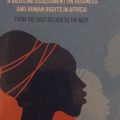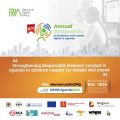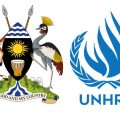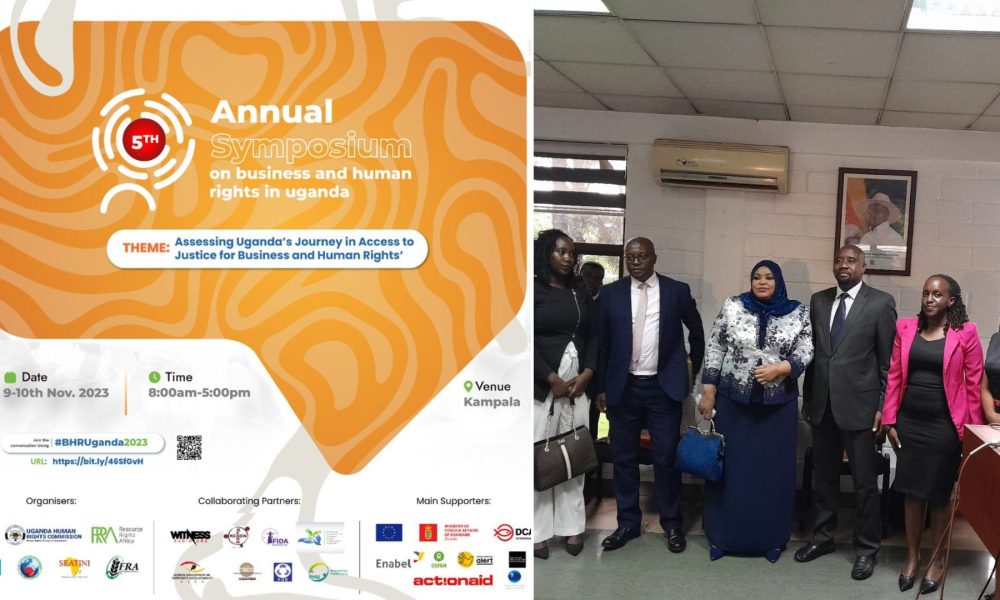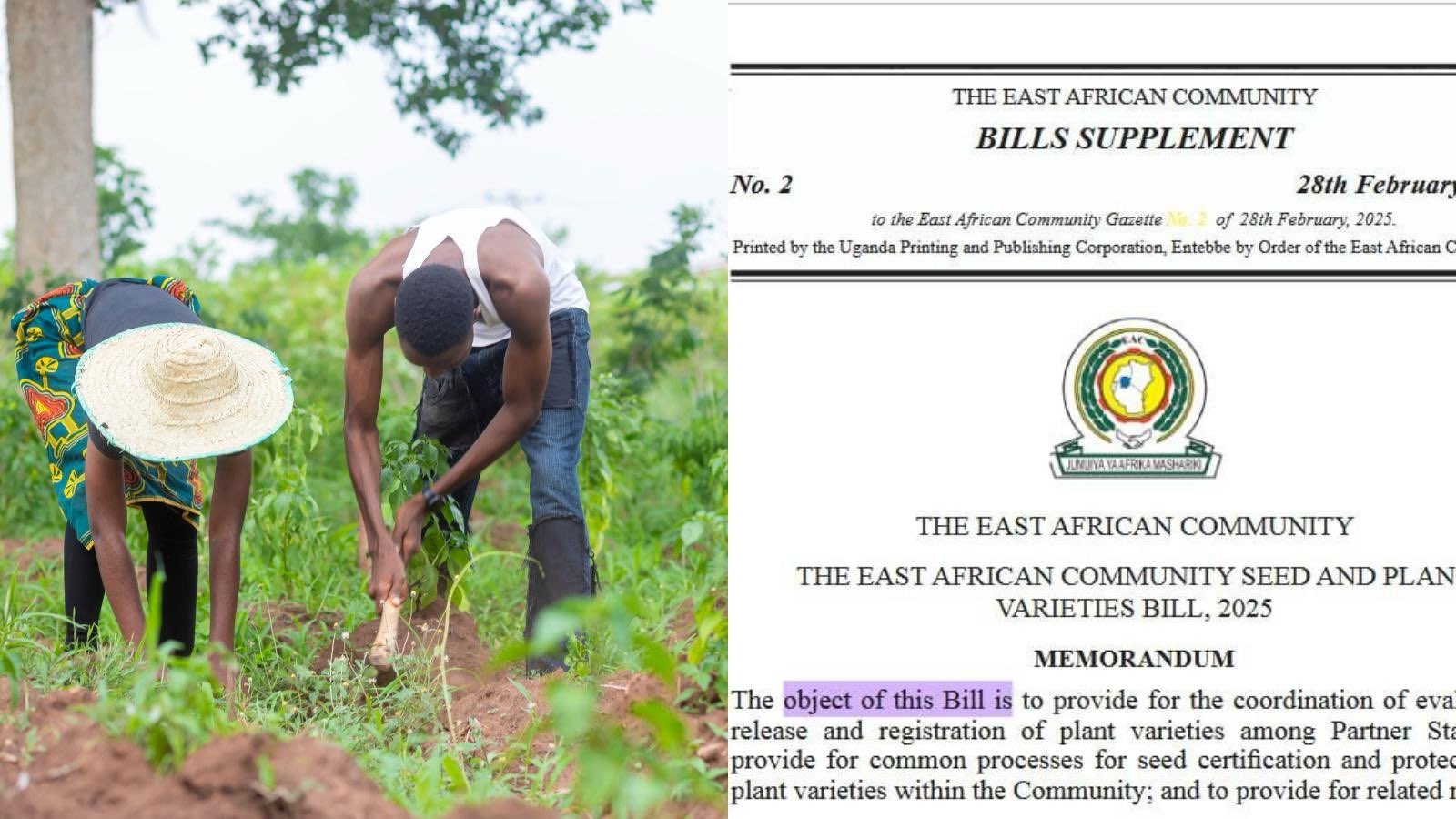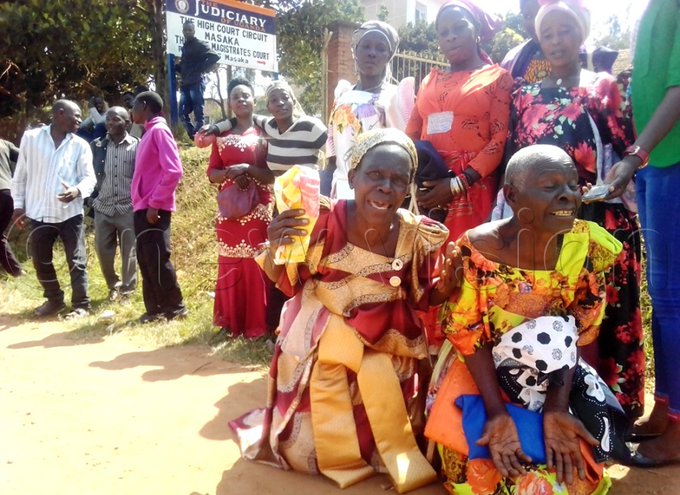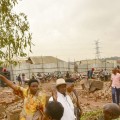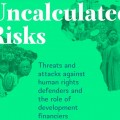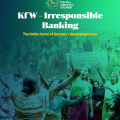Commissioners Mr. Bernard Mujuni, third right, Ms. Shifrah Lukwago, fourth right and other officials after a media briefing at Media Centre, yesterday.
By Witness Radio team
Sixty-one-year-old Namirembe Janatia is one of over four thousand (4000) smallholder farmers in Mubende District being threatened with eviction by Tubikaku Uganda Limited, a company owned by a local investor Desi Kananura, from an area covering 906.496 hectares.
Namirembe was taken aback when the land her family since the late 1970s was suddenly claimed by an affluent businessman.
“The news left me stunned, as I have lived in this village for most of my life. I cannot comprehend how he acquired the land without anyone in the village knowing about it,” she stated with sadness to a researcher from Witness Radio-Uganda.
Neither the company nor its owner was known to locals, and there was no record of him owning a piece of land on the contested property of the villagers who have resided from Biwaalwe, Kabaale, and Kyagaranyi villages in Kanyogoga parish, Butologo sub-county since the 1970s. The community is entirely relying on subsistence farming as a source of livelihood.
According to Namirembe, in 2014, after realizing that they were sitting on public land, they decided to legalize their ownership by applying for a leasehold title. After paying for all the dues required to obtain a lease at the land board in Mubende, a 49-leasehold was offered but eventually returned as a freehold title under Tubikaku Uganda Limited.
Residents claimed that in 2022, they later discovered that Tubikaku Uganda Limited belongs to Desi Kananura, who, however, denies any involvement with the purported land grab.
The economically powerful and politically connected practice of grabbing people ’s land with the assistance of land board officials is rapidly growing in Uganda, rendering many homeless.
Namirembe is not alone; she is one of the millions who have borne the brunt of landlessness as investors and the government prioritize their business interests over their land. Consequently, these individuals are left destitute, while these companies profit and repatriate their earnings to their home countries leaving only traces of human rights violations in communities where their projects are established.
Those who mobilize others to resist harmful projects often face criminalization, false charges, and imprisonment. What is particularly concerning is that when local communities attempt to report the abuses perpetrated against them by these projects or their implementers to the police or the courts of law, they often receive no assistance and occasionally face incarceration.
On several cases, Witness Radio Uganda, a Ugandan-based advocate for land and environmental rights, has investigated and documented the escalating cases of illegal land evictions resulting from irresponsible business-related investments in Uganda, where the rich people and investors are favored over the livelihood and well-being of the poor people.
The various challenges stemming from irresponsible business conduct in Uganda will be discussed and addressed during the 5th Business and Human Rights Symposium, scheduled for 9th and 10th of November 2023 at the Sheraton Hotel in Kampala.
The symposium themed “Twelve Years of UNGPs Implementation: Assessing Uganda’s Journey in Access to Justice for Business and Human Rights” seeks to assess the country’s progress over the last 12 years of the United Nations Guiding Principles on Business and Human Rights
(UNGPs) implementation focusing on the changes that have been registered and the impact of these changes on those affected by business operations.
Since 2018, Resource Rights Africa (RRA) has alongside DanChurchAid (DCA) and in collaboration with the Office of the High Commissioner for Human Rights (OHCHR), Uganda Human Rights Commission, Ministry of Gender Labour and Social Development, and other partners have been organizing the Annual Symposium on Business and Human Rights in Uganda with the support from the Danish Ministry of Foreign Affairs.
Over the years, the symposia have centered on implementing the UNGPs by developing Uganda’s National Action Plan on Business and Human Rights (NAPBHR). This involves learning from past experiences, recognizing opportunities, and addressing challenges in promoting Business and Human Rights within a regulated business environment in Uganda.
According to the organizers, previous symposia have facilitated a comprehensive examination of ways to improve accountability and remedies for human rights issues linked to business activities in Uganda. They have also provided a platform to enhance responsible business conduct, ultimately advancing respect for both people and the planet.
During a media briefing at the Media Centre in Kampala this yesterday,7th of November 2023, Bernard Mujuni, the Commissioner for Equity and Rights at the Ministry of Gender, Labor, and Social Development, who also serves as the chairman of the organizing committee, urged the public to attend the symposium re-echoing that the symposium will provide a platform for reflection and assessment of business conduct, practices, compliance, respect for Human Rights, and labor rights in Uganda, among other important topics.
This annual event gathers various stakeholders from Uganda and beyond to collectively assess the opportunities and challenges in promoting respect for human rights by businesses within the country.

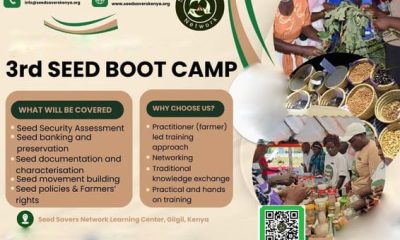
 MEDIA FOR CHANGE NETWORK2 weeks ago
MEDIA FOR CHANGE NETWORK2 weeks ago
 MEDIA FOR CHANGE NETWORK1 week ago
MEDIA FOR CHANGE NETWORK1 week ago
 SPECIAL REPORTS AND PROJECTS1 week ago
SPECIAL REPORTS AND PROJECTS1 week ago
 MEDIA FOR CHANGE NETWORK1 week ago
MEDIA FOR CHANGE NETWORK1 week ago
 SPECIAL REPORTS AND PROJECTS1 week ago
SPECIAL REPORTS AND PROJECTS1 week ago
 MEDIA FOR CHANGE NETWORK2 days ago
MEDIA FOR CHANGE NETWORK2 days ago
 NGO WORK1 day ago
NGO WORK1 day ago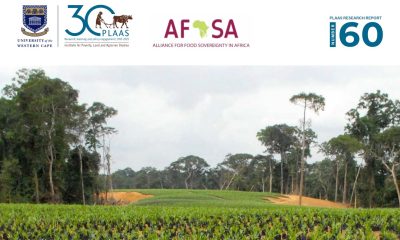
 NGO WORK1 hour ago
NGO WORK1 hour ago

